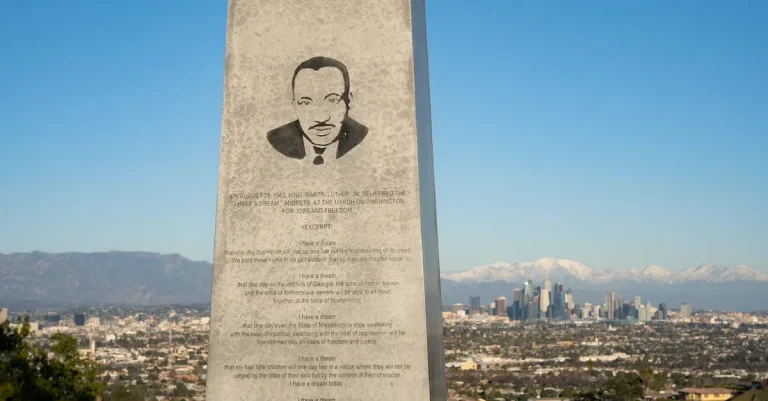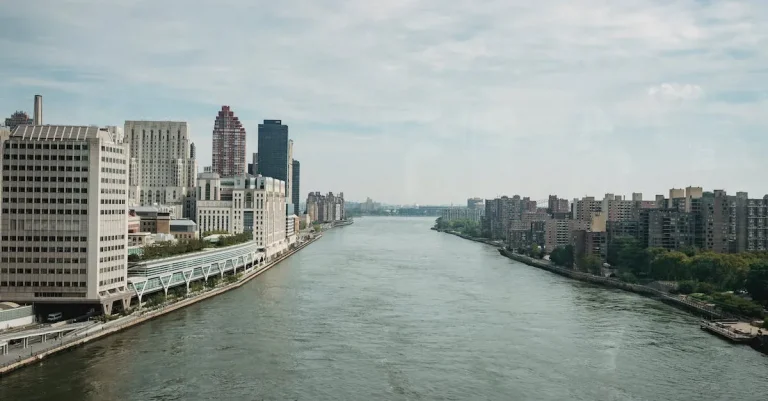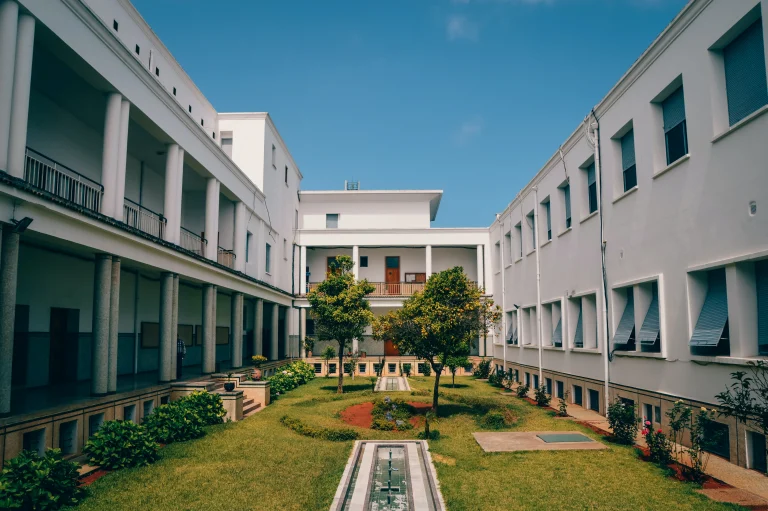Life As A Foreigner In New York City: A Guide To Living And Working In The Big Apple
As an international hub of culture and commerce, New York City attracts visitors and transplants from around the globe. But what is it actually like to live in New York as a foreigner? From visas and green cards to finding work and affordable housing, there are many factors for newcomers to consider.
If you’re short on time, here’s a quick answer to your question: New York offers abundant opportunities for foreigners but also has a high cost of living. Key steps include obtaining proper visas or work permits, finding housing and employment, budgeting for expenses, making connections, and embracing the diversity.
In this in-depth guide, we’ll cover everything you need to know as a foreigner looking to live in New York successfully. We’ll look at the visa and paperwork requirements, strategies for finding jobs and housing, costs of living and how to budget, building community connections, adjusting to culture and lifestyle, and tips from fellow expats who now call NYC home.
Obtaining Proper Documentation to Live and Work in New York
Living and working in New York City as a foreigner requires obtaining the proper documentation to ensure legal status. There are several options available, depending on your circumstances and goals. This guide will provide you with an overview of the different types of visas, how to get a Green Card, and the process of applying for citizenship.
Types of Visas and Eligibility
When considering living and working in New York City, it’s important to understand the different types of visas available and their eligibility requirements. The most common visa for employment purposes is the H-1B visa, which is designed for skilled professionals who have a job offer from a U.S. employer.
Other popular options include the L-1 visa for intracompany transferees and the O-1 visa for individuals with extraordinary ability in their field.
Additionally, there are visas available for investors, students, and individuals with specialized skills. The EB-5 visa, for example, allows foreign investors to obtain a Green Card by investing a certain amount of capital in a U.S. business.
The F-1 visa is commonly used by international students studying in the United States.
It is important to consult with an immigration attorney or visit the official U.S. Citizenship and Immigration Services (USCIS) website for the most up-to-date information on visa types and eligibility.
Getting a Green Card
A Green Card, also known as a Permanent Resident Card, grants individuals the right to live and work permanently in the United States. There are several ways to obtain a Green Card, including through employment, family sponsorship, refugee or asylee status, and the diversity visa lottery.
Employment-based Green Cards are typically obtained through sponsorship by a U.S. employer, and the process can be complex and time-consuming. It often involves a labor certification process, proving that there are no qualified U.S. workers available for the position.
Family sponsorship is another common route to obtain a Green Card. U.S. citizens and permanent residents can sponsor their immediate relatives, such as spouses, parents, and unmarried children under 21 years of age.
For more detailed information on the Green Card application process and eligibility criteria, visit the official USCIS website.
Applying for Citizenship
Once you have obtained a Green Card and have been a permanent resident for a certain period of time, you may be eligible to apply for U.S. citizenship. The process of becoming a U.S. citizen is known as naturalization.
To be eligible for naturalization, you must meet certain requirements, including being at least 18 years old, having continuously resided in the United States for a specified period, and demonstrating good moral character. You will also need to pass an English language and civics test.
For detailed information on the naturalization process and eligibility requirements, the official USCIS website is the best resource to consult.
Living and working in New York City as a foreigner can be an exciting and rewarding experience, but it’s essential to ensure that you have the proper documentation to do so legally. By understanding the different types of visas, the Green Card application process, and the requirements for citizenship, you can navigate the complex immigration system and enjoy all that the Big Apple has to offer.
Finding Housing and Comparing Neighborhoods
When it comes to finding housing in New York City as a foreigner, it can be both exciting and overwhelming. With so many neighborhoods to choose from, it’s important to do your research and find the one that suits your needs and preferences. Here are some tips to help you in your search.
Popular Areas for Expats
New York City is a melting pot of cultures, and there are certain neighborhoods that have become popular among expats. One such neighborhood is the Upper East Side, known for its upscale living and proximity to Central Park.
Another popular area is Williamsburg in Brooklyn, famous for its vibrant arts scene and trendy shops. Astoria in Queens is also a favorite among expats, with its diverse community and affordable housing options.
Short-Term Rentals and Hotels
If you’re planning to stay in New York City for a short period of time, renting a furnished apartment or staying in a hotel might be a more convenient option. There are plenty of websites and platforms that offer short-term rentals, such as Airbnb and HomeAway.
Additionally, there are numerous hotels in the city that cater to different budgets and preferences.
Average Rents and Living Costs
New York City is notorious for its high cost of living, and rents can vary greatly depending on the neighborhood and apartment size. According to RentCafe, as of 2021, the average rent for a one-bedroom apartment in Manhattan is around $3,500 per month.
In Brooklyn, it’s slightly lower at around $2,800 per month. However, keep in mind that these prices can fluctuate and it’s always a good idea to check with local real estate agents or websites for the most up-to-date information.
Aside from rent, it’s important to budget for other living costs such as utilities, groceries, transportation, and entertainment. The cost of living in New York City can be high, but with careful planning and budgeting, it’s definitely possible to enjoy all that the city has to offer without breaking the bank.
Searching for Employment Opportunities
When it comes to finding employment opportunities as a foreigner in New York City, there are several factors to consider. From the best industries to target to tips for job hunting, this guide will help you navigate the competitive job market in the Big Apple.
Best Industries for Foreigners
New York City is a hub for various industries, offering a wide range of job opportunities for foreigners. Some of the best industries for foreigners include technology, finance, hospitality, and healthcare.
The technology sector, in particular, is booming in NYC, with numerous startups and established companies seeking talented individuals from around the world. The finance industry, centered around Wall Street, also offers promising prospects for foreigners with a background in finance and related fields.
Additionally, the hospitality and healthcare sectors are constantly in need of skilled workers, making them viable options for foreigners looking to establish a career in New York City.
If you are unsure which industry to pursue, consider researching the current job market trends and demand in NYC. Websites such as Bureau of Labor Statistics can provide valuable insights into the employment landscape and help you make an informed decision.
Tips for Job Hunting
Job hunting can be a daunting task, especially in a competitive city like New York. Here are some tips to increase your chances of success:
- Networking: Networking is crucial in NYC. Attend industry events, join professional organizations, and connect with individuals in your field to expand your professional network.
- Resume and Cover Letter: Tailor your resume and cover letter to suit each job application. Highlight your relevant skills, experiences, and achievements to stand out from other applicants.
- Online Job Boards: Utilize online job boards such as LinkedIn, Indeed, and Glassdoor to search for job openings and apply directly.
- Company Websites: Check the websites of companies you are interested in working for. Many organizations advertise job openings on their websites before posting them on job boards.
- Professional Development: Continuously invest in your professional development by taking courses, attending workshops, or obtaining certifications. This will demonstrate your commitment to your field and make you a more attractive candidate.
Obtaining a Social Security Number
A Social Security Number (SSN) is essential for employment in the United States. As a foreigner, you will need to apply for an SSN once you have secured a job offer. To obtain an SSN, you will need to visit a Social Security Administration office and provide the necessary documentation, such as your passport, visa, and job offer letter.
It is recommended to start the application process as soon as possible, as it may take a few weeks to receive your SSN.
For more information on how to obtain an SSN and the required documentation, visit the official website of the Social Security Administration at www.ssa.gov.
Budgeting for Life in New York City
Living in New York City can be an exciting and fulfilling experience, but it can also be quite expensive. To make the most of your time in the Big Apple, it’s important to have a solid budget in place.
This guide will provide you with some valuable tips and insights on how to budget for life in New York City.
Major Expenses to Factor In
When creating your budget, it’s essential to consider the major expenses you’ll encounter while living in New York City. These include housing, transportation, food, and entertainment.
Housing: New York City is known for its high rental prices, so be prepared to allocate a significant portion of your budget for housing. Consider the cost of utilities, such as electricity and internet, as well.Transportation: Getting around in the city can be costly, especially if you rely on public transportation. Factor in the cost of subway or bus fares, as well as any additional expenses for taxis or rideshare services.Food: Dining out in New York City can be a delightful experience, but it can also take a toll on your budget. Consider cooking at home more often and exploring affordable dining options to save money on food.Entertainment: With its vibrant arts and culture scene, New York City offers plenty of entertainment options. However, attending Broadway shows or visiting museums can be expensive. Look for discounted tickets or free events to enjoy the city’s entertainment without breaking the bank.
Saving Money on Essentials
While living in New York City, there are several ways to save money on essential expenses:
- Consider roommates: Sharing an apartment with roommates can help reduce your housing costs.
- Use public transportation: Instead of relying on taxis or rideshare services, opt for the city’s efficient subway system or buses.
- Shop smart: Take advantage of weekly sales and discounts at local grocery stores to save money on groceries.
- Meal prep: Prepare your meals in advance to save both time and money.
- Utilize free activities: New York City offers numerous free activities and events, such as outdoor concerts and art exhibitions.
Managing Finances
Managing your finances effectively is crucial when living in New York City. Here are some tips to help you stay on top of your financial situation:
- Create a budget: Set clear financial goals and allocate your income accordingly.
- Track your expenses: Use budgeting apps or spreadsheets to keep track of your spending and identify areas where you can cut back.
- Build an emergency fund: Unexpected expenses can arise, so it’s important to have a safety net in place.
- Invest wisely: Consider seeking advice from a financial advisor to help you make smart investment decisions.
- Monitor your credit score: Your credit score can impact your ability to secure loans or rent an apartment, so regularly check and maintain a good credit score.
By budgeting carefully, saving money on essentials, and managing your finances effectively, you can make the most of your experience as a foreigner living in New York City. Remember, it’s all about finding a balance between enjoying the city’s offerings and maintaining financial stability.
Building Community and Making Connections
One of the most important aspects of living as a foreigner in New York City is building a community and making connections. It can be intimidating to move to a new city where you may not know anyone, but fortunately, there are plenty of avenues to meet like-minded individuals and form meaningful relationships.
International Associations and Events
New York City is a melting pot of cultures, and there are numerous international associations and events that cater to different communities. These associations provide a platform for foreigners to connect with others from their home country or cultural background.
Whether it’s a cultural festival, a networking event, or a community gathering, these associations offer a sense of familiarity and provide an opportunity to meet people who share a similar background or experience.
Websites like Internations and Meetup are great resources to find such events and groups.
Dating and Expat Social Life
Another way to build connections as a foreigner in New York City is through dating and the expat social scene. Dating apps like Tinder, Bumble, and OkCupid are popular among locals and expats alike, offering a chance to meet new people and potentially form romantic relationships.
Additionally, there are social groups specifically tailored for expats, where individuals can bond over shared experiences and explore the city together. These groups often organize outings, parties, and other social events to bring people together.
It’s a great way to make friends and create a support system in your new home.
Connecting Locally
While it’s essential to connect with fellow expats, it’s also important to immerse yourself in the local community. New Yorkers are known for their friendly nature and willingness to help newcomers feel at home.
Taking part in local activities and joining clubs or organizations that align with your interests can help you meet locals who share your passions. Whether it’s joining a sports team, volunteering for a local charity, or attending community events, these activities offer opportunities to build connections with people who call New York City their home.
Adapting to the Lifestyle and Culture
Living as a foreigner in New York City can be an exciting and rewarding experience. However, it’s important to be aware of and adapt to the unique lifestyle and culture of the city. Here are a few key aspects to consider:
Navigating Customs and Etiquette
New York City is known for its fast-paced lifestyle, and it’s important to be prepared for the hustle and bustle. One of the first things to learn is the art of walking on the crowded sidewalks. Remember to keep to the right and avoid blocking the flow of pedestrian traffic.
Additionally, it’s customary to greet people with a brief nod or smile when passing them on the street.
When dining out, tipping is a common practice in New York City. It’s customary to leave a gratuity of 15-20% of the total bill for waitstaff and bartenders. If you’re unsure about tipping etiquette, don’t hesitate to ask a local or refer to online resources such as NYCGo.
Language Considerations
English is the primary language spoken in New York City, but you will also encounter a multitude of other languages due to its diverse population. However, it is helpful to have a basic understanding of English to navigate daily life and communicate with locals.
If English is not your first language, consider taking language classes or using language learning apps to improve your proficiency.
New Yorkers are generally friendly and understanding when it comes to language barriers, so don’t be afraid to ask for clarification if you don’t understand something. Many New Yorkers will be more than happy to assist you.
Embracing Diversity
New York City is known for its diversity, with people from all over the world calling it home. Embracing this diversity can enrich your experience as a foreigner in the city. Take the time to explore different neighborhoods, try various cuisines, and attend cultural events and festivals.
One of the best ways to immerse yourself in the city’s diverse culture is by visiting museums and cultural institutions. The Metropolitan Museum of Art, the Museum of Modern Art, and the American Museum of Natural History are just a few examples of the world-class institutions that offer a glimpse into different cultures and histories.
Conclusion
While living in New York poses challenges for newcomers, the abundance of opportunities and diversity make it an unmatched experience. By obtaining proper visas, budgeting wisely, connecting with fellow expats, and immersing oneself in the culture, foreigners can thrive in the exciting melting pot of NYC. It takes openness and perseverance, but the personal and professional rewards of expat life in the Big Apple are immense.








